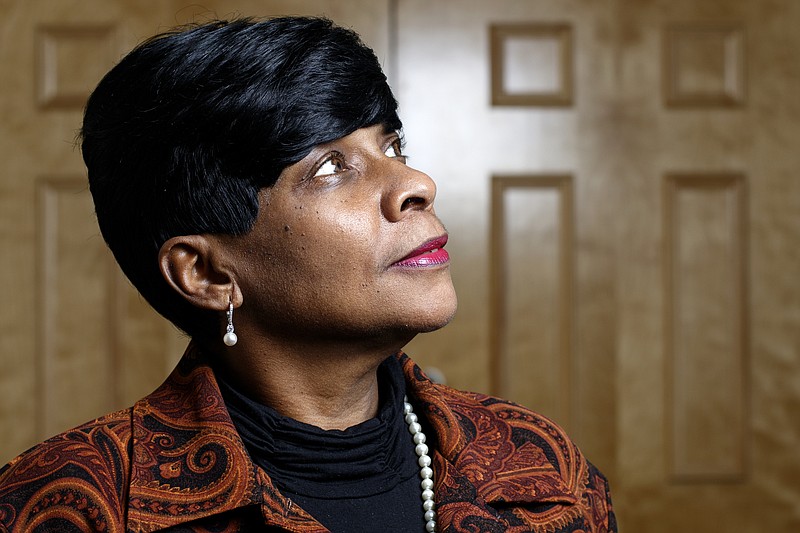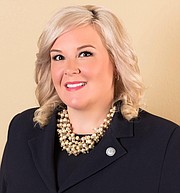Anita Taylor has been in the funeral business since the early 1990s when she joined her husband as a funeral director at Taylor Funeral Home in Chattanooga.
When she first started, there were a lot more men in the field, she said, "but over the years, the women have come aboard and taken interest."
In 2017, nearly 65 percent of graduates from funeral director programs in the United States were female, according to the American Board of Funeral Service Education. That's the highest number ever recorded by the board. Women are being drawn in record numbers to a profession in which, just a few decades ago, it was rare for anyone but men to work.
Just in Tennessee at John A. Gupton College in Nashville, the female population has grown to about 60 percent within the past five years, said college President Steven Spann. This year, there are 58 women enrolled in the 99-person class.
While a majority of people looking to enter the profession are women, 74 percent of morticians and funeral directors are still men, according to 2016 U.S. Census Bureau data.
Stereotypes about women not being strong enough to lift coffins, or worries about exposing pregnant workers to embalming chemicals, make some male funeral home owners reluctant to hire women.
Shawn Williamson is another one of the very few female funeral directors in Chattanooga. She and her husband own Legacy Funeral Home & Cremation Center and Wann Funeral Home & Cremation Center.
There were only eight women in her graduating class of about 40 people nearly 20 years ago at John A. Gupton College. Of those eight, only three are still in the business, she said, and they're all owners.
"So that kind of shows you how hard it was for the females to get a job coming out in this industry 20 years ago," she said. " They had a hard time getting a job because they felt like people feel like you're not emotionally strong enough, that you're not physically strong enough, and you're not mentally strong enough," she said.
Through the early Victorian era, caring for the dead was very much a women's role in the U.S.
Death care took place in the home, more often than in institutional settings, and preparing a body for burial was a family matter.
That began to change during the Civil War, when embalming fluids allowed families to bring dead soldiers home from the battlefield. And embalming necessitated a scientific education, from which women were then being systematically excluded. Men quickly came to dominate the new death care industry, as did a false notion that women were too squeamish or emotional to handle death.
But those notions are slowly fading as more women get into the industry.
"A lot of the reason people get into this profession, they've had something happen in their life like the funeral home director was so nice to them, they're like, 'Oh, I want to do that. I want to help people.' That's a lot of women," Williamson said.
She said she's also seeing more daughters of owners get into the business.
"It's kind of a generational business, and for years, the daughters just never went into the business," Williamson said. "But now, as times are changing, the daughters are actually getting into the industry."
Sometimes, women work much better with families than men do, Spann jested.
"I mean, who better to be a caregiver than a woman?" he said. "That's a big percentage of what we do [being caregivers]."
Both Taylor and Williamson both echoed Spann's thoughts.
"Men are caring as well, but women have more of a caring touch to them," Taylor said. " It's kinda like when you talk about the family, you have the mother and the father. You know, we tend to say that the mother is more understanding and more coddling, and that kind of thing. Well, we bring that to the table."
And in the funeral industry, you have to have that touch, she said.
"It's something that just the average person can't do. It's almost like you have to have a calling for it," Taylor said. "You have to have a love for it."
The Associated Press contributed to this story.
Contact staff writer Rosana Hughes at rhughes@timesfreepress.com or 423-757-6327 with tips or story ideas. Follow her on Twitter @HughesRosana.

